It all started on July 7, after noon.
The inhabitants of El Cementerio, a neighborhood in the southwest of Caracas, began to hear shootings and ran to hide.
It is their second nature, accustomed to the fights between criminal gangs and the bloody incursions of the police forces.
But this time, the confrontation was different.
“
We were locked up for three days, like in the wars
you see in the movies.
Our life changed forever, ”says Esther de Sussa, 45, born and raised in that violent neighborhood.
De Sussa was not in El Cementerio when it all began, he was working on the other side of the city and had to fight with the refusals of the taxis to get there.
“Nobody wanted to take me but, when I arrived, I grabbed my children and went up to lock myself up, we threw ourselves on the floor.
We couldn't cook, we couldn't walk around.
It is true that there are fights and that one hears the bullets, but never anything like that
”, he explains with fear in his voice, as he remembers hearing detonations for more than 20 hours in a row.
Death toll rises to 10 in unusual clashes between criminals and police in Caracas
July 9, 202100: 25
[The Maduro regime harasses opposition Juan Guaidó at his home and detains former MP Freddy Guevara in Venezuela]
From July 7 to 9, many inhabitants of popular areas in the southwest of Caracas such as El Cementerio, La Vega, Cota 905, El Paraíso and Avenida Lecuna say that they experienced the most intense military confrontations of their lives.
Videos and photos showing the roar of guns and victims went viral on social media.
It was a series of skirmishes and brawls between the
criminal gang of Carlos Luis Revete, a notorious capital gangster better known as 'el Koki'
, and the state security forces.
The Venezuelan authorities affirm that the events left
26 people dead (22 suspected criminals and four police officers) and 28 injured
.
In order to regain control of the area, the Nicolás Maduro regime had to deploy more than 3,100 officials and an estimated 700,000 people were affected by the interruption of their work and commercial activities due to the intensity of the shootings.
Police commandos arriving at Cota 905, on July 9, 2021.AP
[The story of Jesus in the United States: two kidnappings made him flee from Venezuela. Years pass and asylum does not come]
To date, it is not yet known where 'el Koki' - and his closest allies - is located, so the authorities offer a
reward of $ 500,000
for any information on his whereabouts
"Now we are survivors of all this, we never had much freedom but seeing the militarized neighborhood, the dead, the wounded,
that is not going to be erased, I cannot
," De Sussa explains with dismay.
Experts and analysts agree that the incidents of last week differ from the usual clashes between armed gangs and police, it is a sign of the loss of territorial control in the capital of the country.
The Venezuelan Observatory of Violence (OVV), a non-governmental organization that monitors insecurity in the country, registered
12,000 deaths in violent acts during 2020.
That organization warns that, despite the pandemic, that is equivalent to a rate of 45.6 per 100,000 inhabitants, seven times higher than the world average.
Next, we offer some characteristics that the investigators, and the people affected, have expressed about the incidents that occurred in Caracas and their possible consequences.
They report an escalation of violence in the streets of Venezuela.
Nacho Lozano analyzes recent events
July 9, 202102: 54
[Biden grants TPS to more than 300,000 Venezuelans in the United States]
What happens at Cota 905?
The clashes between the security forces and the gangs that control Cota 905 have been going on for several years. In fact, on April 22, Venezuela's social networks were flooded with videos showing a group of terrified police officers trying to take shelter from a hail of rifle bullets.
The mega-gang led by 'el Koki', which not only controls all the criminal cells in the area but also constantly seeks to expand and annex new territories, seems to have consolidated during the last year, starring in increasingly challenging acts of public order. In Cota 905 everything has been seen: shots against armored vehicles of the security forces,
the taking of the very social club of the police, attacks against entire commissions of the scientific police
and closures of the main highway of the city, among others Actions.
"What happened was serious because it occurs in Caracas, in
a place that is located 4.5 kilometers from Miraflores, which is where the president is,
" Ronna Risquez, a Venezuelan journalist specializing in organized crime and human rights, explains to Noticias Telemundo.
Risquez is concerned about the intensity and duration of the actions registered in the Southwest and the victims.
“Practically a quarter of the capital's parishes were paralyzed, this shows how precarious the government's situation of stability and security is.
Then there is the number of victims, which are many, and that is a very rough balance ”, he asserts.
At least seven dead leave the wave of attacks by organized crime in Caracas
July 9, 202100: 22
["I lost everything. What I did was worth nothing ”: Venezuelan soldiers who supported Juan Guaidó and fled to the US are now incarcerated by ICE]
The arsenal of criminals
One element that differentiates the security crisis that recently unleashed in Caracas was the weapons used by criminal groups.
According to the authorities, the gang led by 'el Koki' carried high-caliber weapons, tracer bullets, grenades and drones used by criminals to map the areas they controlled.
After the police officers finally managed to enter Cota 905, although it took them a couple of days to take control,
more than 24,000 ammunition, three rocket launchers, five rifles, four submachine guns, six pistols, a revolver, and a rifle
were seized.
Barrett M99
- a weapon that can cost more than $ 6,000.
In addition, 71 vehicles were recovered.
Carmen Meléndez, Minister of the Interior, said in a press conference held on July 10 that "the seized military arsenal is of American origin and belongs to the Armed Forces of Colombia."
The Venezuelan vice president, Delcy Rodríguez, also announced the arrest of three alleged Colombian “paramilitaries” during the peacekeeping operation in the capital.
"
It was a show of force by the gangs of this sector against the State
, in response to police actions that had been carried out days before in other areas against other criminal groups," explains Keymer Ávila, researcher at the University's Institute of Criminal Sciences. Central of Venezuela.
For Ávila, these actions will have serious consequences, because the State "was clearly and notoriously attacked and aggrieved."
"It is possible that these gangs have made a bad calculation, overestimated their own capacities and underestimated those of the State," warns the expert.
The impressive images of criminals facing shots with weapons of war against the Caracas police
July 8, 202100: 36
[Leopoldo López in an interview with Noticias Telemundo: "Our main mistake was to create expectations of change in the short term"]
Kidnappings in the same neighborhood
Faced with the intense state offensive, the criminals did not hesitate to retain people from the same neighborhood in order to buy time and slow down police operations.
“We were two days tucked under the kitchen counter, it was a nightmare to be so close to the food and not be able to prepare anything because there was no light, and
we did not want a stray bullet to kill us.
It scared me very much
, ”explains María, a resident of Cota 905, who asked to remain anonymous for fear of reprisals.
He says that Thursday, July 8, is a day that he will never forget because, at 5 in the afternoon, there was a knock on the door of his house.
Upon opening it, he saw three bloody and angry young men who demanded that he go out and play cacerolazos because "they were being killed."
One stayed at the door of her house and told her that if "things got ugly" they would kidnap her.
“As I could, I grabbed a pot and started hitting it with all my might, you don't know what to do in those cases.
After a while he left, but they grabbed several people from the neighborhood as kidnapped while they escaped or killed them, ”she explains in terror.
Authorities said that during the police operation, they released nine people who were kidnapped.
Clashes between FARC guerrillas and the Venezuelan Army provoke a wave of displaced people
March 24, 202100: 35
[Nicolás Maduro imposes an electoral system to suit him in Venezuela]
Displacement of people
Despite the fact that the inhabitants of the most dangerous neighborhoods of Caracas usually have direct contact with violence, in various interviews with Noticias Telemundo they affirmed that nothing had prepared them for this.
“On Friday at 6 in the morning it
was sad to see mothers with their children, many small children, coming down loaded with large bags to leave the neighborhood
.
We also had to take out my grandson, my two nephews, and my son before 6:30 in the morning ”, explains Esther de Sussa.
Members of the special forces (FAES) in an operation in the La Cota 905 neighborhood on July 9. Anadolu Agency via Getty Images
In the shootings the “normal” shots were not heard, as the people of the neighborhoods often say jokingly.
De Sussa, and almost all of her neighbors, can distinguish a 9-millimeter shot, with its clean and almost cold sound, from the shots of a 38 revolver, spaced and expansive.
But the roar of the incessant bursts of weapons of war, mixed with explosions of grenades, the flyby of a helicopter and the raucous howls of wounded people was something they had not experienced.
“And the repression began because in order to get out of the hill the policemen would check everything, they would see your bags, and they would ask you where you were going as if you were a thug.
It was very strong, ”says De Sussa, while emphasizing that in all his life he had never had to leave the neighborhood because of violence.
On Sunday July 11, De Sussa received a call from a woman who told her, in terror, that her granddaughter was playing with a "very pretty" green stone that she got on the street.
"It was a grenade, the police had to come up with special vests to take it from the girl's hands. We don't deserve this," she says between sobs.
Various defense groups denounced that dozens of families from the Southwest fled in terror at dawn on July 9, after surviving 48 hours of lead.
Another Approach, a civic organization, enabled its facilities to
house 30 young people from Cota 905 in an unusual scene of internal displacement.
“I feel good in La Cota, but when those shootings are armed, not like that, even I was left in the middle of the shooting.
And I started to run the other way, "said one of the young women, who preferred not to reveal her identity, to the EFE agency.
[The bleak images of Venezuelan children searching for food and valuables in the trash]
Take the avenues
At the strategic level, another difference was the expansion of the area that was affected by the shootings.
In general, these confrontations tend to remain on the internal borders of the popular neighborhoods, where criminal groups exercise de facto control over the activities of their inhabitants.
But last week, armed groups toured parishes like El Paraíso while shooting in the avenues and shouting:
“Shoot the buildings!
We are the underworld! "
.
“It was more than 24 hours of even lead, the first thing you feel is that you don't dare to move.
We all fell asleep in the living room, and the girls' stress was exasperating, ”explains Tibisay Guerra, director of the Venezuelan Authors organization, who lives in a building near the epicenter of the skirmishes between the police and the gangs.
Guerra has lived in that urbanization for more than two decades and, despite its idyllic name, he feels that for a few hours it became a true hell.
He also went out to take refuge with his relatives in other places, while the battle continued.
“I was trying to calm everyone down but the pressure is so strong, the impacts are heard so close, that you
literally feel the bullets whistle.
Then I also started crying,
”he says in frustration.
“We saw frontal attacks on the headquarters of the National Guard, and that is incredible.
These criminals believe they are capable of taking on the security forces on their own turf, ”says Phil Gunson, an analyst at Crisis Group.
Gunson and other experts point out that the spread of criminal activities to other areas of the city is a sign of the dismantling of all institutions in the country. do they work.
Everything is done by force, so
the criminals think that the only thing you need to survive in this jungle is more weapons, more money and more ties to political power
, ”he asserts.
[What happened to the Deferred Forced Departure program for Venezuelans?]
Criminal governance
When in doubt about how a gang of criminals could grow under the gaze of the country's highest political power, that is, the presidency, experts often point to various causes but all are linked to political discourse and the changes promoted by the current regime.
Gunson traces the origin to the political speech of Hugo Chávez, the late leader of the Bolivarian revolution.
“Chávez created
a kind of franchise scheme to cede control of large sectors of the territory
, both in rural areas and in cities, to armed groups that supported him and, with the passage of time, criminals began to take control and to negotiate head-on with the government, ”he explains.
Risquez sees the gang led by 'el Koki' and its bloody saga as one more variant of criminal governance, an academic concept used to explain the dynamics of areas controlled by criminals who impose rules of conduct on their inhabitants.
It is a common phenomenon in many Latin American countries and that translates into anomalous situations in which the gangs occupy certain functions of the State, such as when, for example, the narco distributed food pantries in Mexico, it is also the case of the neighborhoods that Pablo Escobar He helped build in Medellín or the “neighborhood justice” that 'el Koki' imparted on Cota 905 when people asked him to help resolve their conflicts.
Several dead and wounded after a violent shooting in the west of Caracas, Venezuela
March 20, 202100: 17
[This Venezuelan rescues the history of his country through social networks]
“The Government allowed that band to act and articulate.
They did nothing to control this situation, and as the pandemic worsened the country's economic crisis,
many young people preferred to work with him because he paid in dollars,
”says Risquez.
In 2015, the police took Cota 905 but the gang persisted and prospered, presumably thanks to an agreement with the regime that sought to pacify some areas of the city in the face of the avalanche of citizen protests that occurred at that time.
“It is likely that, in a couple of months,
the gang will rearm and take control again because what happens in that area is not resolved with weapons
or violent tactics but with comprehensive policies on education, access to food and public policies. ”, Asserts the expert.
For its part, the Maduro regime ensures that the shootings were planned by the Venezuelan opposition and showed alleged WhatsApp conversations to justify their accusations.
It is expected that arrest warrants will be issued against various leaders of the opposition parties, although former deputy
Freddy Guevara was already arrested on Monday for the crimes of "financing terrorism, criminal association and treason
.
"
"It is, obviously, an arrest for political purposes, completely absurd," said Juan González, Guevara's lawyer, about the situation of his client, and announced that he will appeal against the measure.
In addition, that same Monday a group of state security agents appeared at the residence of the opposition leader Juan Guaidó and held him for a few minutes in the parking lot of his residence, although he has not been detained so far.
Two days later, Nicolás Maduro said at a press conference that he will request the extradition of opposition leader Leopoldo López, who is in exile in Spain.
Maduro's onslaught against the opposition leadership occurs while a European Union mission evaluates whether it is possible to deploy a commission to observe the regional and local elections in November, in addition to the negotiations for the progressive lifting of US sanctions and
a possible resolution to the deep Venezuelan political conflict.
Meanwhile, many residents of the southwest of Caracas join forces to overcome the collective trauma that represented the three days of last week.
On the morning of Friday, July 9, when the shootings stopped for a moment, Tibisay Guerra went up to his terrace to see Ávila, the mountain that surrounds Caracas.
Guerra just wanted to enjoy a brief moment of peace, before the gunshots resumed.
But horror gave him no respite: one of his glass tables, where he usually sits with his friends, had been blown to pieces by a stray bullet.
“This is the first time that I think about moving.
I
really
want to go, because I can't live that again,
”he says with horror.
The journalist Eulimar Núñez was in charge of editing this article.


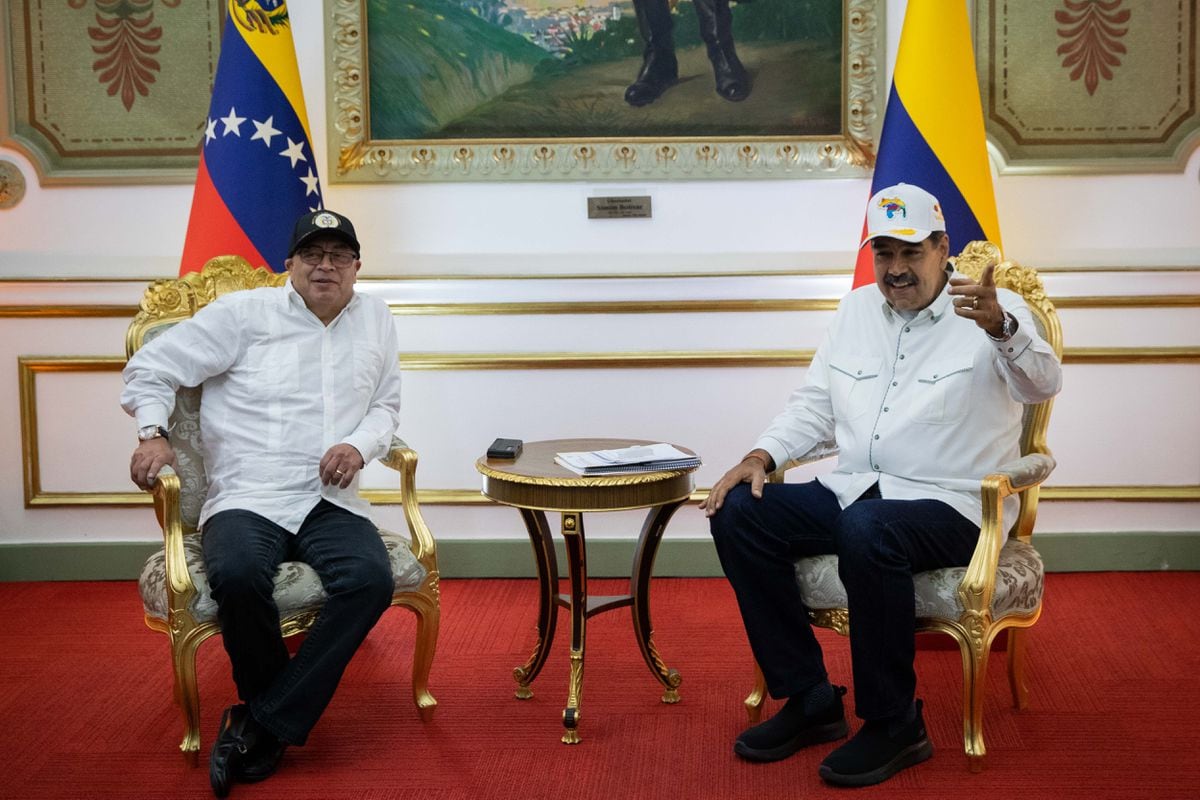
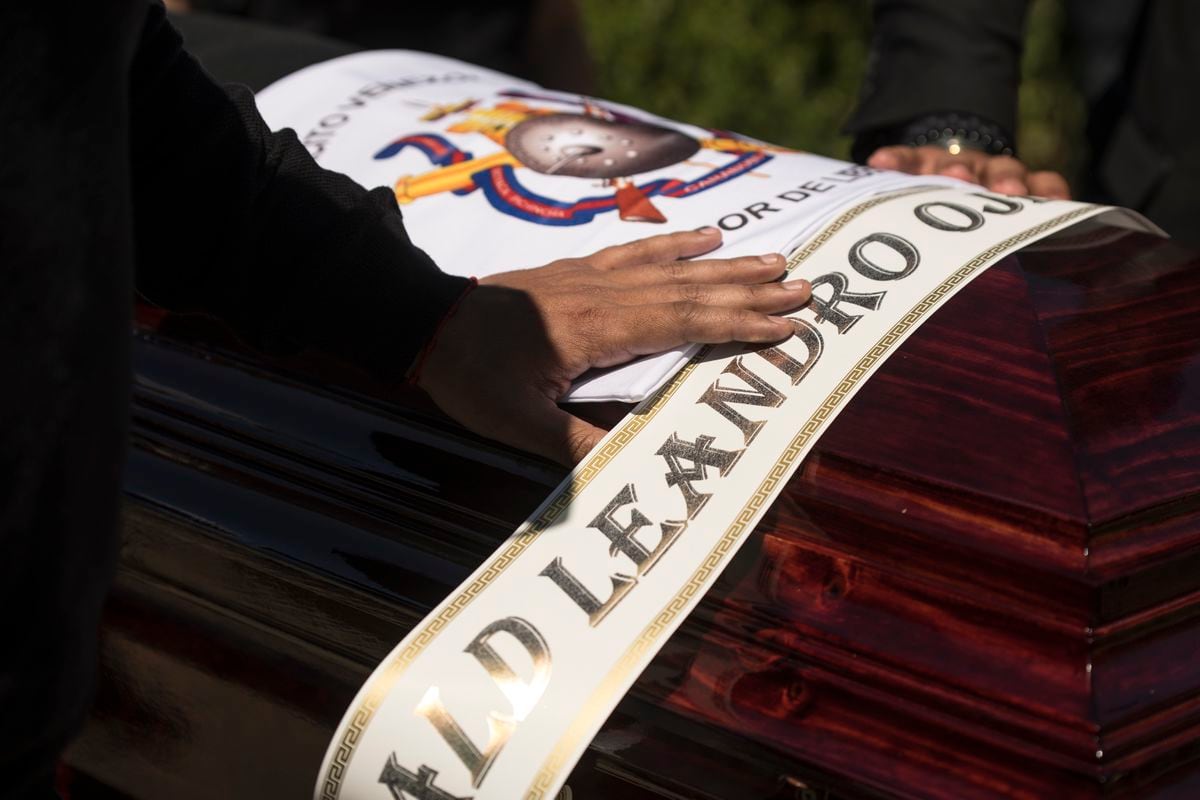
/cloudfront-eu-central-1.images.arcpublishing.com/prisa/RQOIVGVVQYQD3ILPTU3PLOVE6Q.jpg)
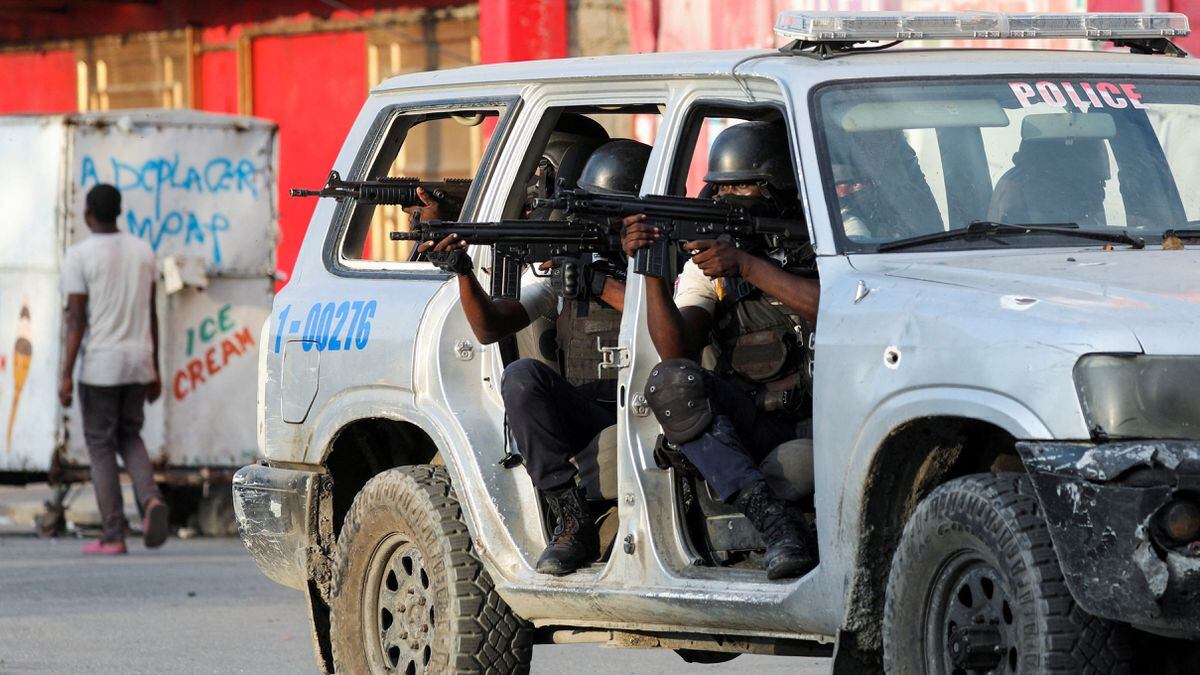
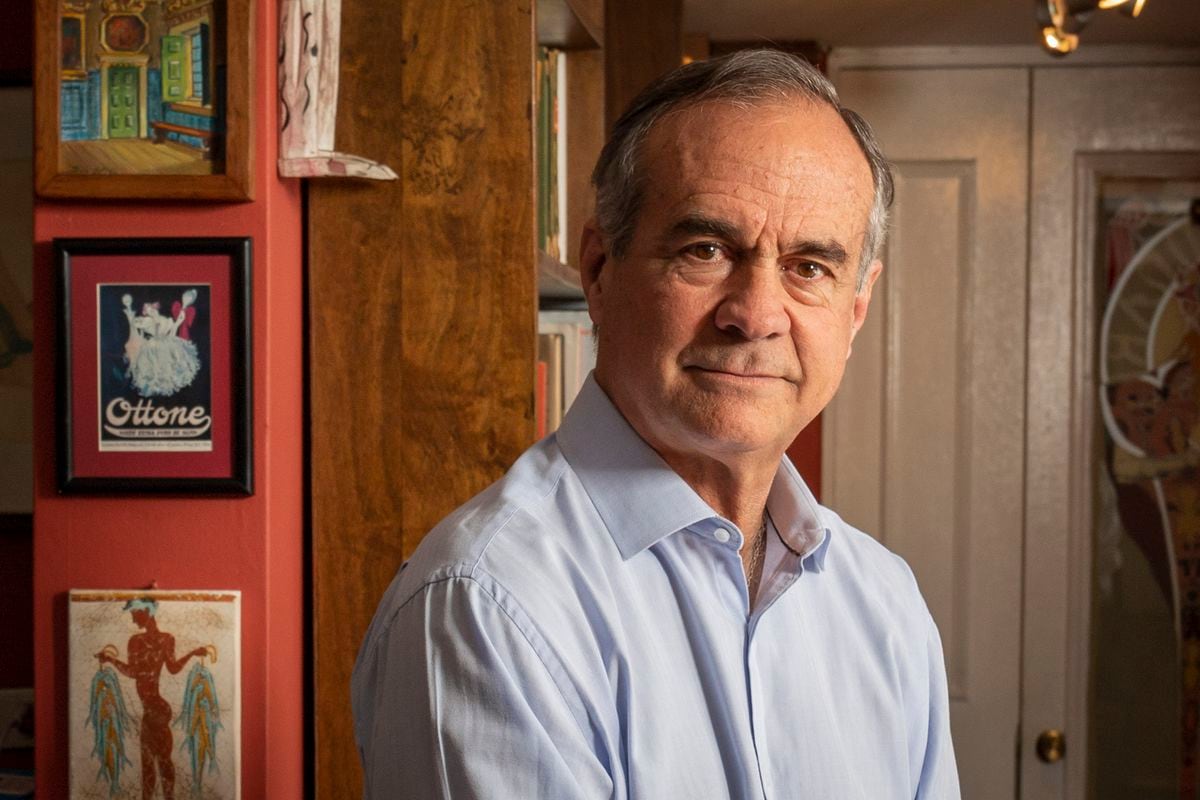
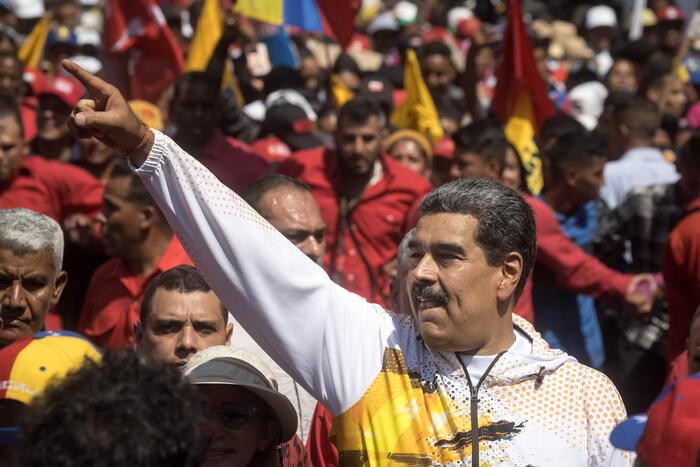
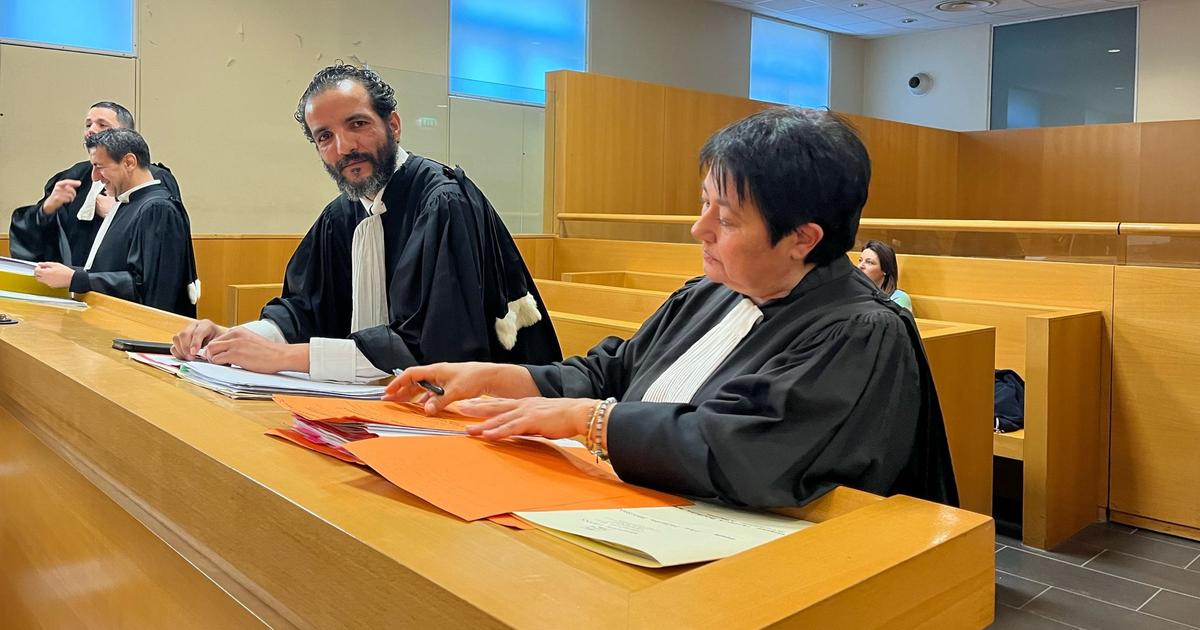
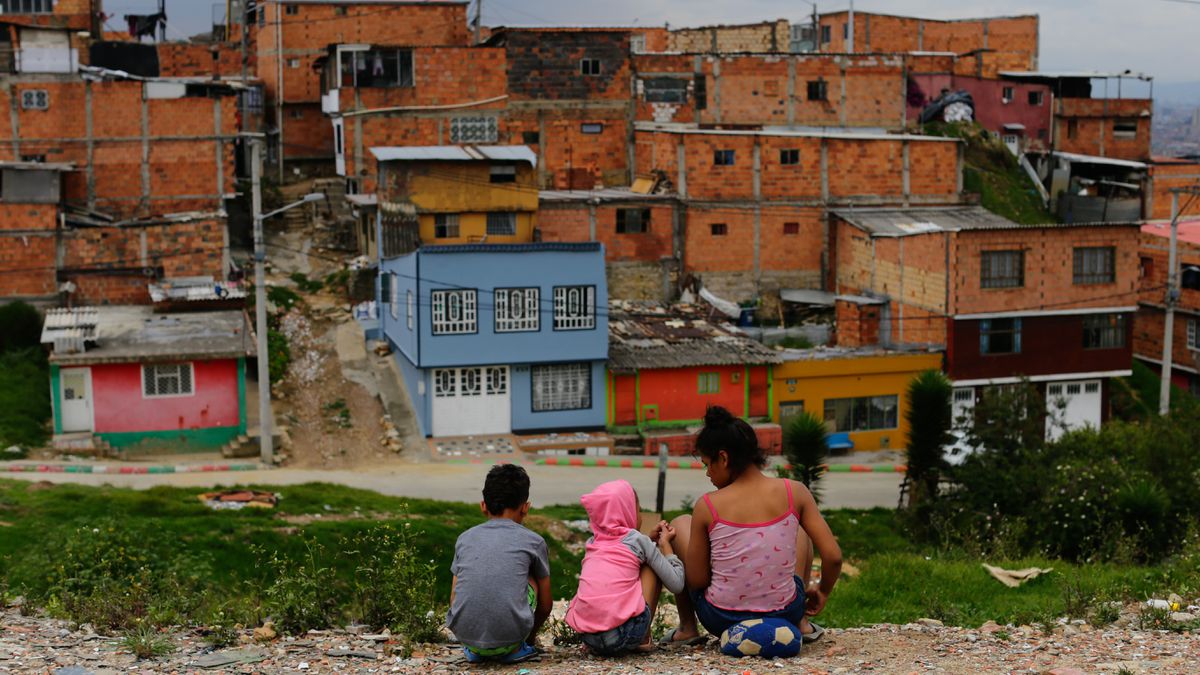


/cloudfront-eu-central-1.images.arcpublishing.com/prisa/KMEYMJKESBAZBE4MRBAM4TGHIQ.jpg)


